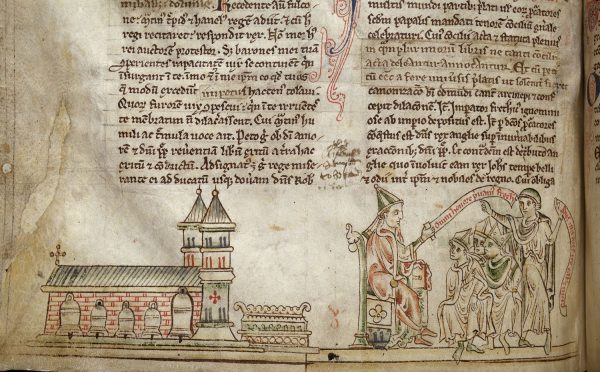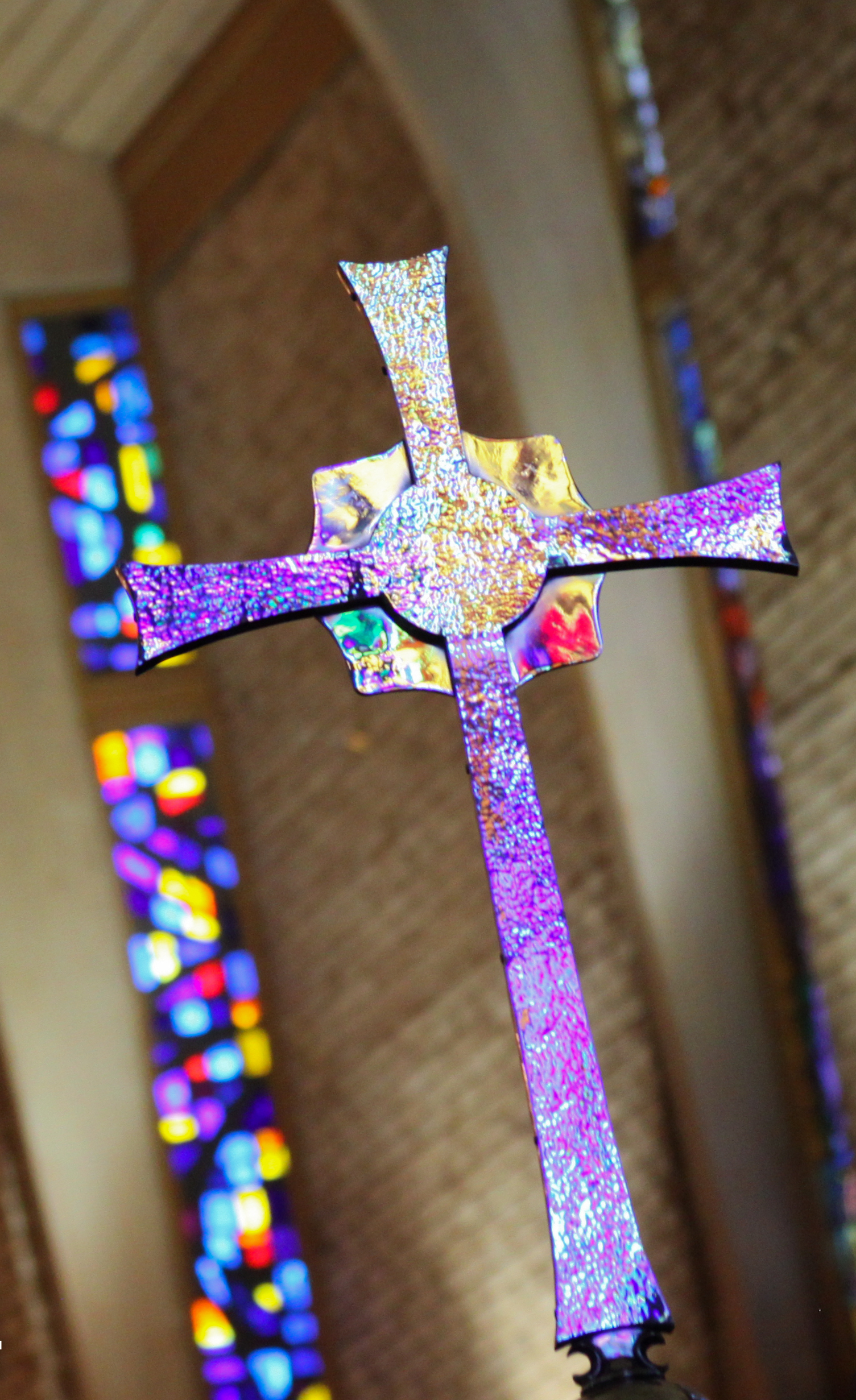I just realized yesterday afternoon that Kevin Wilson had continued our discussion begun in comments on my blog post regarding GAFCON and possible responses at Lambeth. Kevin offered some great comments to that post and I wanted to respond to one or two points he made in his full post. 1NB: Google has set up a “warning” regarding Kevin’s blog Blue Cord because of some spurious posts a hacker slipped in. Please disregard as his blog is now clean, but Google is slow to update his status.
I will begin with my comment that determining what is Anglican theology is quite difficult (if not impossible). Kevin offers the tried and true response that it is found in the BCP.
Chris asserts that one of the problems is that we have no real way of asserting what the teachings of the Anglican Church are. I would disagree. I think they are formulated quite nicely in the creeds of the church as presented in the Book of Common Prayer. These have been the creeds that have held Anglican churches together for almost 600 years
That is true, but as Kevin notes (and my point) that any sort of discipline based upon this seemingly impossible. He offered Bishop Spong as a prime example and I think that says it all. If a member of the clergy (let alone a bishop) openly rejects major elements of the creeds and yet remains in their position it is clear that the creeds and the BCP are no longer functioning as any sort of glue holding us together. Kevin comments,
But I don’t see that as a reason to abandon Anglican polity and put a more Evangelical or Catholic version in its place. We should fix the structures so that they function according to our canons and traditions. We need to make the church more Anglican, not less. There is no reason to throw the Anglican baby out with the revisionist bathwater.

Origin: England, S. (St Albans)
Attribution: Matthew Pari
Agreed. But what would that be? So far we have been unable to get anywhere close to a “settlement” that would work. This it what is so disheartening. There seems to be no way forward. The side of “progress” insists on marching forward without waiting (or listening) to anyone else. The traditionalists are entrenched and see no future with the others. Compromise does not seem to be in anyone’s vocabulary.
One point of genuine disagreement with Kevin is regarding Evangelical “polity.” I am not calling for an Evangelical or Catholic polity to replace the our current polity (I would just like one that owuld work). But I do maintain that there is no such thing as “Evangelical polity.” Kevin insists that there is, saying
I think there is a fairly clear one, although it is certainly not the polity of the Presbyterian Church. I think the best examples are found within modern Baptist circles and non-denominational churches. It is a polity that bases fellowship and communion on theological agreement. Although most say that you only have to agree on essentials, they usually end up with a list that defines some pretty marginal issues as essential. I think that polity has been evident in a number of conservatives in the Anglican Communion who say they cannot have fellowship with those who disagree with them on homosexuality.
There is a lot here, but I would make just two points. The first is that Evangelicalism is not a denomination or community per se, but rather is a theological perspective. Granted, churches, communities, and denominations have formed with the “essentials” as their core beliefs, but at no point does Evangelicalism put forward a particular method of governance as “essential” or even marginal. It is true that many Evangelicals will use these essentials to determine inclusion into their communities and that some (many?) communities include doctrines that presumably Kevin (and I) would call “marginal issues” as essential. But this is not polity and it is not an outgrowth of Evangelicalism it is a result of the Reformation. (But that is another post.) After all, the reality is that there Baptists, Presbyterians, Episcopalians, Methodists, Pentecostals, etc. who all consider themselves “Evangelical” and yet have very different means of governance within their churches, both local and national.
My second point is regarding the issue of homosexuality specifically and those who would cut off fellowship with others on this issue. I agree with Kevin when he says “You would be hard pressed to define a particular stance on homosexuality as central to what it means to be Christian, yet it is a make-or-break issue for some people.” And this saddens me greatly. I do not, however, see it as specifically “Evangelical” or even an issue of “polity.” It is not Evangelical because many, in fact in the US I would wager even money that most, are not “Evangelicals but people who might be better described as “traditionalists” or “Anglo-Catholics” (how do we capitalize that?). True those in Africa and certainly the media often describe opponents of the ordination of homosexuals and the blessing of same sex unions as “Evangelicals” but their broad brush is too sweeping. It is not simply or only an Evangelical view point, specifically within the Anglican Communion.
Finally it is only an of polity or governance as a result of the decisions that people have made not to associate with “the other.” That is to say, the traditionalists who hold such a view do not hold that view based upon their notion of church proceedure and governance (although I suppose one might invoke 1 Cor. 5:5) rather it is an outgrowth of other decisions they have made. We can of course draw lines linking theological convictions to actions and outcomes and many Evanglicals will follow that same line, but that is not the same thing as “Evangelicalism” having a polity that is established and always intended to be followed.
Kevin concludes responding to my earlier conclusion,
What do we believe? The creeds, plus whatever your local congregation and diocese decide, even if that is something different than the congregation down the street. How do we worship? By using the Book of Common Prayer. To paraphrase an old Evangelical saying, “If it was good enough for Cranmer, its good enough for me.” The Anglican church has survived for almost 600 years on that basis, and I see no reason to change it now.
I wish it could be so. But this is the crux of the problem that the progressives do not agree with the Book of Common Prayer as it stands now and are continually working to change it. And that is the reality, the BCP has changed much in the last 600 years and while no one is directly trying to remove or alter the creeds (although there is always someone crying in the wilderness to remove them to the “historical documents”) the current issues if resolved in the favor of our PB would result in significant changes to the BCP and our policy (if not polity). The result of such change in the past has always been that the Anglican church of a given nation and the Communion as a whole was substantial enough not to feel the departure of parishioners and clergy that attends such major changes as the ordination of women. But now very few Anglican communities in the north and west are solid enough not to feel the impact of such movements. The recent articles about the likely impact of the consecration of women bishops in the Church of England is case in point.
Fundamentally it is a power play. Whoever controls the ball determines the rules and if you don’t like it you can leave. This statement of course would be true (and has been) when conservatives were in greater control and enforcing their traditional beliefs and it is no less true with progressives at the helm. The difference with the conservatives was that they had those 600 years on their side. Still and back to my point, I don’t see anyone blinking let alone clapsing hands across the aisle. Whoever has control will exert it and if it is the progressives who gain control this time it will not be a few departing, at least on the global scale, but many. It will be a divorce and I doubt if it will be amicable.
I realize I have not said anything new and certainly not as coherently as others have already commented. In fact, I have tended to keep silent on this topic and I may well return to my quiet contemplation. I will post newsworthy items but I will let others comment. I simply pray that we all remember and behave with the knowledge of the truth that it is Christ’s church and His alone.
- 1NB: Google has set up a “warning” regarding Kevin’s blog Blue Cord because of some spurious posts a hacker slipped in. Please disregard as his blog is now clean, but Google is slow to update his status.





3 thoughts on “Polity and politics”
It is hard to know what an evangelical polity would look like since there is no clear prescription for a political system in Scripture in the New Testament church. To the way that it was described here it seems to be a congregational system rooted in firm non-negotiables. This is an implausible position to take and will lead to a rather non-connectional system. The problem is what is negotiable versus what is not. That is the issue of the Anglican communion as well as every other religious polity in the Protestant world. The only way to resolve that unity is to have a pope who can declare non-negotiables ex cathedra. That is what is ensured by papal infallibility. But without this rigid hierarchical system, everything becomes negotiable at some point in time and none of us can ignore history and the reality that none of these denominations are the same as they were 100, 50, or 25 years ago.
To me it comes down to pragmatism. We can have an agreed set of principles, but the question that results in difference is how we instantiate those principles in our political systems that are structured to bear witness to them.
Not part of this game, but I always bristle when I see terms like “traditionalist” associated with proscriptions on homosexuality. Perhaps I come from a tradition where we stomp on traditions just to prove that they are disposable and not part of core Biblical teaching. The fact is that sin is a foundational concept, which has the subset of sexual immorality and this has a major subset of homosexuality. The Anglican ship is at the point where half of the crew insists that the ship will float better if we do away with the tradition of having a hull without holes, while the other half of the crew is adamant that the tradition of not putting holes into the hull should be preserved at all costs.